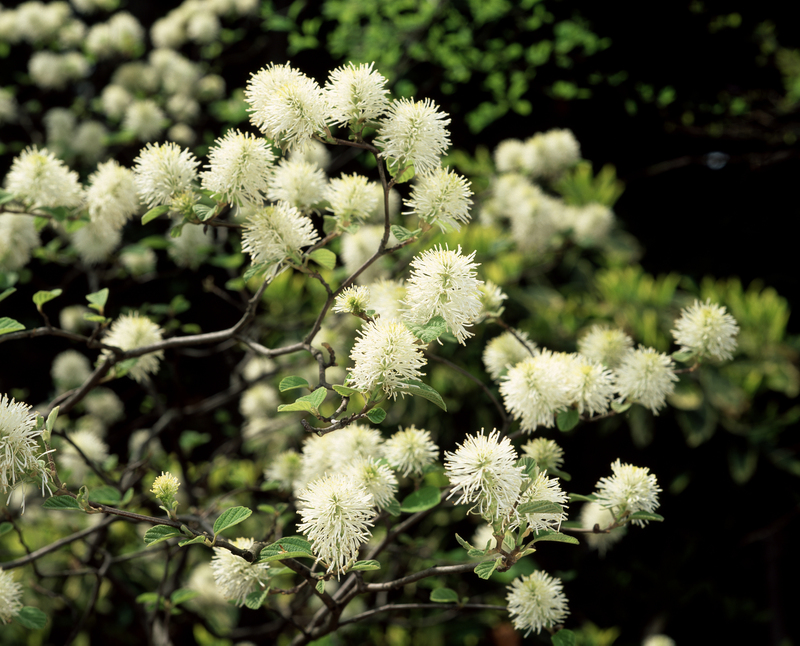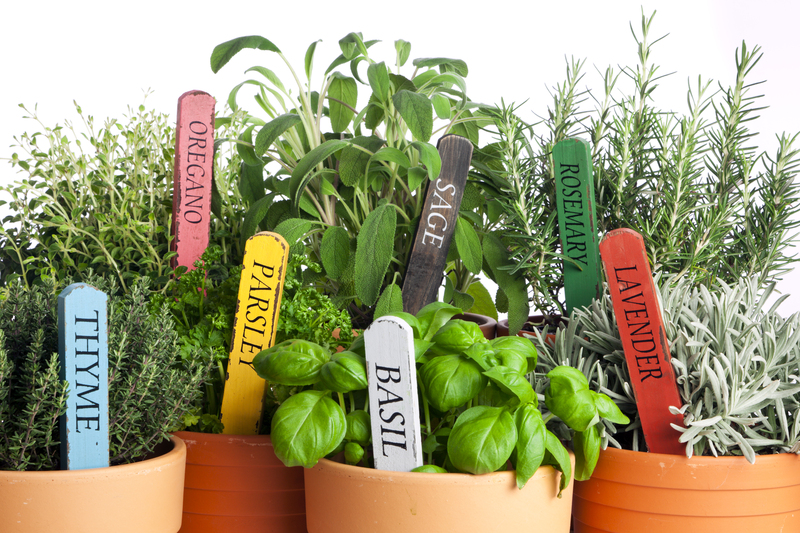Conquer Weeds Effortlessly with 3 Innovative Tips
Posted on 25/09/2025
Conquer Weeds Effortlessly with 3 Innovative Tips
Weeds can turn even the most beautiful gardens and lush lawns into a battleground, stealing vital nutrients and sunlight from your prized plants. If you find yourself constantly fighting an uphill struggle against these persistent intruders, it's time to change your approach. In this comprehensive guide, we'll reveal three innovative tips to help you conquer weeds effortlessly. Forget endless hours of back-breaking labor--embrace smarter, science-backed solutions to take control of your landscape and enjoy a weed-free space.

Understanding the Weed Problem: Why Fast Action Matters
Before diving into the best methods to eliminate weeds effectively, it's important to understand what makes them such formidable adversaries. Weeds are naturally adept at exploiting gaps in your soil and outcompeting other plants for resources. They grow and spread rapidly, reproducing through seeds or underground stems, making them hard to remove completely once established.
- Competition: Weeds steal water, sunlight, and nutrients from desirable plants.
- Resilience: Many weed species boast tough roots and remarkable adaptability.
- Rapid Spread: One weed can produce thousands of seeds, creating ongoing problems if left unchecked.
Taking quick, efficient action doesn't just make your landscape more beautiful--it also preserves plant health, conserves resources, and saves you countless hours of frustrating maintenance.
3 Innovative Tips to Conquer Weeds Effortlessly
Ready to win the battle against invasive plants? Here are three groundbreaking strategies to help you get rid of weeds for good, without endless toil or heavy chemicals.
Tip 1: Mulch Smarter, Not Harder
Mulching has long been a favorite technique to control weeds--but to effectively suppress weeds, it's crucial to use this method strategically.
- Choose the Right Mulch: Organic mulches like shredded bark, straw, wood chips, and compost not only block sunlight (inhibiting weed growth), but also improve soil structure as they decompose. Inorganic mulches like landscape fabric or decorative stones can also be useful in specific settings like walkways.
- Apply the Perfect Thickness: Many gardeners make the mistake of spreading a thin layer of mulch. For maximum weed suppression, use 2-4 inches of organic mulch. This thickness smothers weeds and helps retain soil moisture.
- Refresh Periodically: Over time, mulch decomposes or shifts. Add a fresh layer annually to keep your weed barrier strong and your soil nourished.
- Spot-Treat with Smothering Techniques: For tough, stubborn patches, consider laying down cardboard or newspaper beneath your mulch layer. This creates an extra shield that starves weeds of light and breaks down naturally.
Why It Works: Mulch acts as both a physical barrier and a resource enhancer. By blocking sunlight, it hinders weed seedlings from sprouting. Plus, as organic mulches break down, they feed your soil, benefiting wanted plants and making it harder for weeds to establish dominance.
Mulch smarter, and you'll find you spend way less time pulling weeds, and more time enjoying your garden.
Tip 2: Harness the Power of Innovative Weed Barriers
Traditional methods like black plastic or old carpets can sometimes cause more harm than good--trapping water, suffocating roots, or creating messes later. Modern weed barriers offer effective and eco-friendly alternatives designed to make weed intervention almost effortless.
- Landscape Fabric 2.0: Today's advanced landscape fabrics are breathable, durable, and available in eco-conscious materials. Lay fabric wherever you plant shrubs or perennials. Cut X-shaped slits for your desired plants, and cover the rest with mulch for a double-layer blockade.
- Living Mulch & Cover Crops: Planting dense, low-growing groundcovers--or using cover crops in off-seasons--can outcompete weeds for space and nutrition, leaving little opportunity for weed seeds to thrive.
- Permeable Stone or Rubber Mulch: For pathways or play areas, permeable stone mulch or recycled rubber keeps weeds down without the compaction and waterlogging of old-fashioned plastic.
- DIY Cardboard Layering: If you're prepping new beds, lay down flattened cardboard boxes directly onto grass or weeds, then top with rich organic matter. The cardboard breaks down over time, but first, it suffocates weeds and prevents new growth.
Why It Works: The key to conquering weeds effortlessly is limiting their resources. Modern barriers block sunlight but allow water and air to pass through, supporting plant health and making it virtually impossible for weeds to rise up through your soil.
Innovative barriers are especially ideal for busy homeowners and urban gardens, providing long-term weed control with minimal maintenance.
Tip 3: Employ Precision Targeting with Modern Tools and Natural Solutions
Forget endless hand-pulling or dousing your garden in synthetic herbicides! With a combination of advanced tools and natural formulations, you can target weeds with surgical precision--and protect the rest of your landscape.
- Flame Weeding: This technique involves passing a propane-powered flame weeder over weeds. The heat bursts plant cells, causing rapid wilting and death--but doesn't disturb soil or harm established plants. It's perfect for driveways, sidewalks, or vegetable beds before planting.
- Selective Natural Herbicides: Use commercial-grade organic herbicides, many made from clove oil, acetic acid (vinegar), or citric acid, for spot treatment. These break down quickly in the environment and are non-toxic around pets and children.
- High-Tech Weeding Tools: Consider ergonomic, stand-up weeders for deep taproots (like dandelion pullers) or battery-powered brush weeders for tight spaces. These tools save time and reduce strain--plus, they pull the whole root for lasting results.
- Boiling Water & Vinegar Sprays: For patio cracks or isolated weeds, a kettle of boiling water or a spray of household vinegar can work wonders. Always use caution near wanted plants!
- Precision Spot Spraying: Invest in a spray wand with an adjustable nozzle. Target individual weeds at their base, avoiding drift to other plants.
Why It Works: Modern methods allow for targeted weed elimination that's swift, eco-friendly, and drastically reduces labor. Coupled with a proactive approach (such as regular inspections), these tools ensure that weeds never get the upper hand.
Stay vigilant and use these precision techniques to strike weeds as soon as they appear--saving yourself future headaches and protecting the ecosystem of your garden.
Bonus Pro Tips for Effortless Weed Domination
- Stay Consistent: Make a habit of walking your garden weekly. Early interventions are always easier--and more effective--than tackling a full-blown invasion.
- Healthy Lawn Practices: Mow your grass at its recommended height (not too short), fertilize appropriately, and overseed thin spots. A dense, healthy lawn is the best defense against weed invaders.
- Encourage Beneficial Soil Life: Healthy, biodiverse soil discourages weed growth. Add compost, avoid soil compaction, and encourage earthworms--your garden's natural allies.
- Disrupt Weed Cycles: Remove weeds before they flower or set seed. Bag and dispose of pulled weeds--don't toss in compost if they're already seeding.
Tip for Vegetable Gardens: Try intensive planting. By reducing gaps between crops (using square-foot gardening or companion planting methods), you minimize space for weeds to take hold while maximizing your harvest.

Frequently Asked Questions on Effortlessly Managing Weeds
Is it possible to have a completely weed-free garden?
No method can promise to eliminate weeds completely forever, as weed seeds are carried by wind, birds, and water. However, by layering these innovative strategies, you can reduce weed presence to virtually zero with minimal effort.
How do I prevent weeds in my flower beds?
Apply 2-4 inches of organic mulch atop weed-suppressing landscape fabric, introduce dense plantings of groundcovers, and spot-treat any emerging weeds with a natural herbicide or by quick hand-pulling before they seed.
Are there any environmentally friendly weed killers?
Yes! Products based on vinegar, citric acid, clove oil, and other botanical extracts are just as effective when applied directly to unwanted plants--and won't harm beneficial insects, wildlife, or soil health.
How often should I replace my mulch or weed barrier?
Replenish organic mulch every spring, and inspect landscape fabrics each year for tears or exposed patches, offering extra protection as needed.
Can I stop weeds without using chemicals?
Absolutely. With modern weed barriers, mulching, precision targeting, and strategic planting, you can maintain beautiful beds and lawns without harsh chemicals.
Conclusion: Transform Your Battle with Weeds Forever
Armed with these three innovative tips--mulching smarter, deploying advanced barriers, and using precision tools--you can conquer weeds effortlessly in any lawn or garden. The secret isn't working harder, but working smarter: blocking weeds before they appear, minimizing their resources, and removing them with pinpoint accuracy.
By understanding how weeds operate and implementing integrated, modern strategies, you'll create an environment where weeds can't take root--leaving you with a flourishing, low-maintenance, and beautiful landscape.
Ready to reclaim your outdoor space? Try these expert-approved methods and watch your weed problems become a thing of the past. For more tips on sustainable gardening and advanced weed management, follow our blog and never miss a trick for healthier, happier plants!
Latest Posts
Get Inspired: Designing Awe-Inspiring Seating Areas in Your Garden
Conquer Weeds Effortlessly with 3 Innovative Tips
Overcoming the Challenges of a Windy Garden Environment

